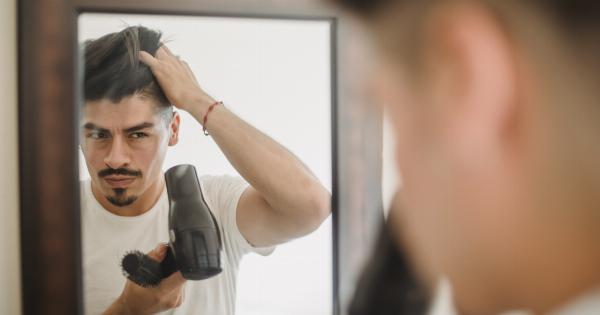Hair loss can be a distressing experience for both men and women. While it is commonly associated with aging, there are several surprising causes that can contribute to this condition.
Understanding these underlying factors can help individuals take proactive steps to prevent further hair loss and promote hair growth. In this article, we will explore ten surprising causes of hair loss.
1. Stress
Stress is a common factor that can contribute to hair loss. When the body experiences prolonged periods of stress, it can disrupt the normal hair growth cycle, resulting in hair fall.
Telogen effluvium is a condition caused by stress, which pushes hair follicles into a resting phase, leading to excessive shedding.
2. Poor Nutrition
Nutrition plays a crucial role in maintaining healthy hair. A deficiency in essential vitamins and minerals, such as iron, zinc, biotin, and vitamin D, can contribute to hair loss.
Consuming a balanced diet rich in fruits, vegetables, lean proteins, and healthy fats is important for hair health.
3. Hormonal Imbalance
Hormonal imbalances, such as those associated with thyroid disorders or polycystic ovary syndrome (PCOS), can lead to hair loss. The imbalance of hormones affects the hair growth cycle, leading to thinning or shedding of hair.
4. Medications
Certain medications, such as chemotherapy drugs, antidepressants, and blood thinners, can cause hair loss as a side effect.
If you suspect that your medication is contributing to hair loss, consult with your healthcare provider to explore alternative options.
5. Overstyling
Excessive heat, chemical treatments, and tight hairstyles can damage the hair shaft and lead to hair breakage. Avoid using heating tools at high temperatures and opt for protective hairstyles that minimize tension on the hair.
6. Autoimmune Conditions
Autoimmune conditions like alopecia areata can cause hair loss. This condition occurs when the immune system mistakenly attacks the hair follicles, resulting in patchy hair loss.
Proper diagnosis and treatment from a dermatologist can help manage the symptoms and promote hair growth.
7. Smoking
Smoking has numerous detrimental effects on overall health, including hair loss. The chemicals present in cigarettes can lead to decreased blood circulation to the scalp, causing hair follicles to weaken and hair to become thin and brittle.
8. Excessive Vitamin A Intake
While vitamin A is essential for overall health, excessive intake can lead to hair loss. Consuming large amounts of vitamin A supplements or medications containing high levels of vitamin A can trigger hair shedding.
9. Environmental Factors
Environmental factors, such as pollution, exposure to ultraviolet (UV) radiation, and harsh weather conditions, can damage the hair cuticle and lead to hair loss.
Protecting the hair with hats, scarves, or using protective hair products can minimize the damage caused by these factors.
10. Genetic Predisposition
Genetics play a significant role in determining an individual’s likelihood of experiencing hair loss. If there is a family history of baldness or thinning hair, there is an increased risk of inheriting this trait.
While genetic hair loss is challenging to prevent, various treatment options are available to manage and slow down the progression.
























